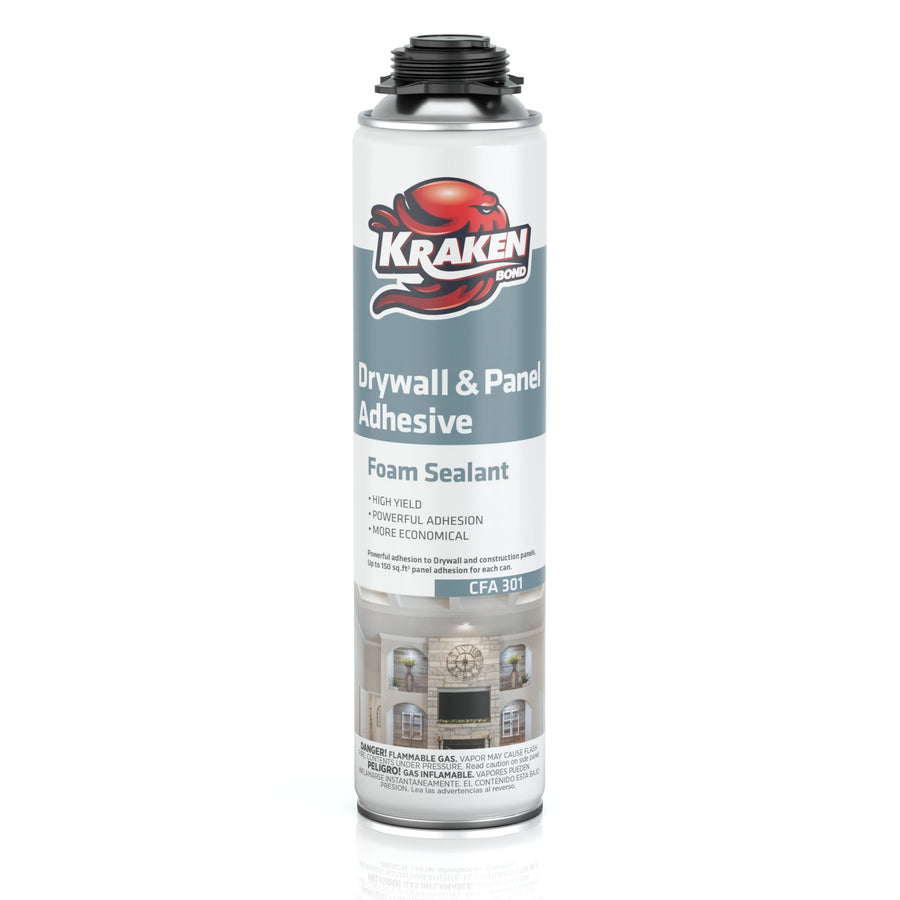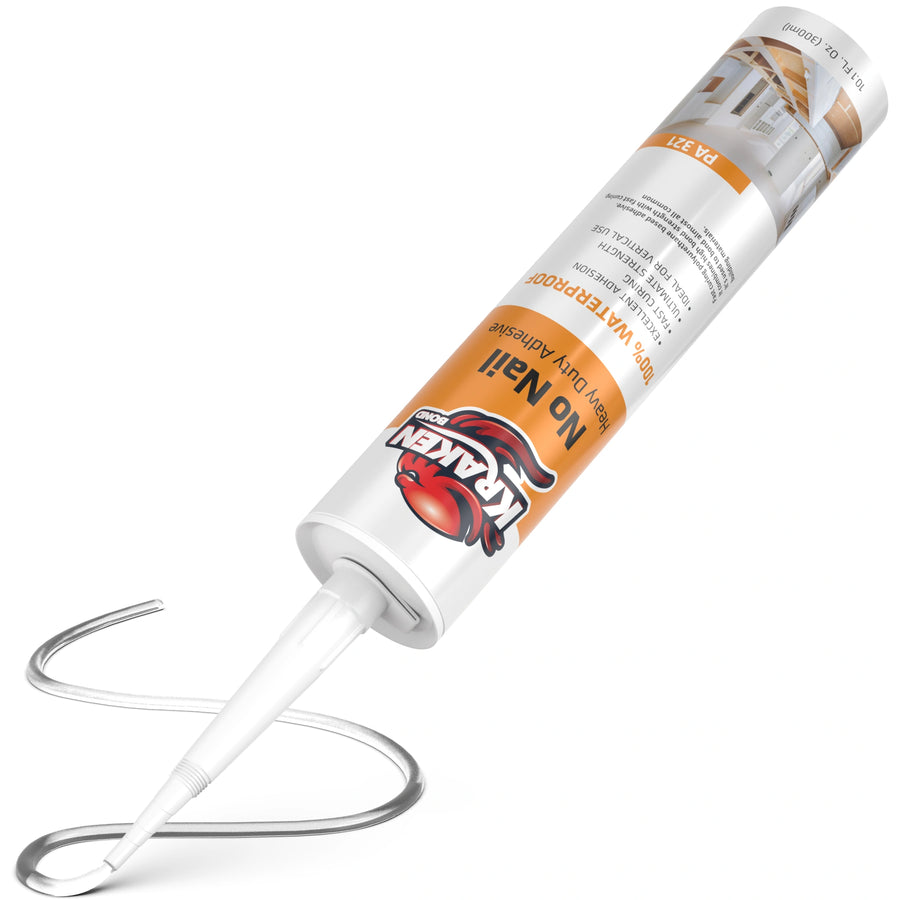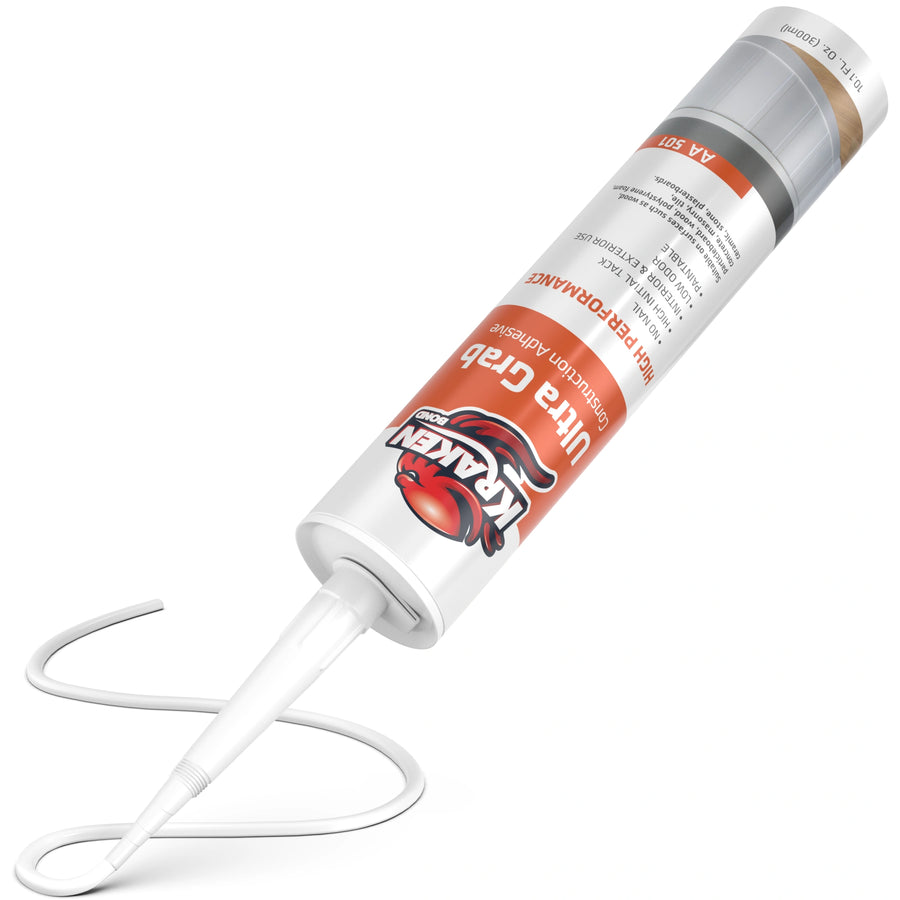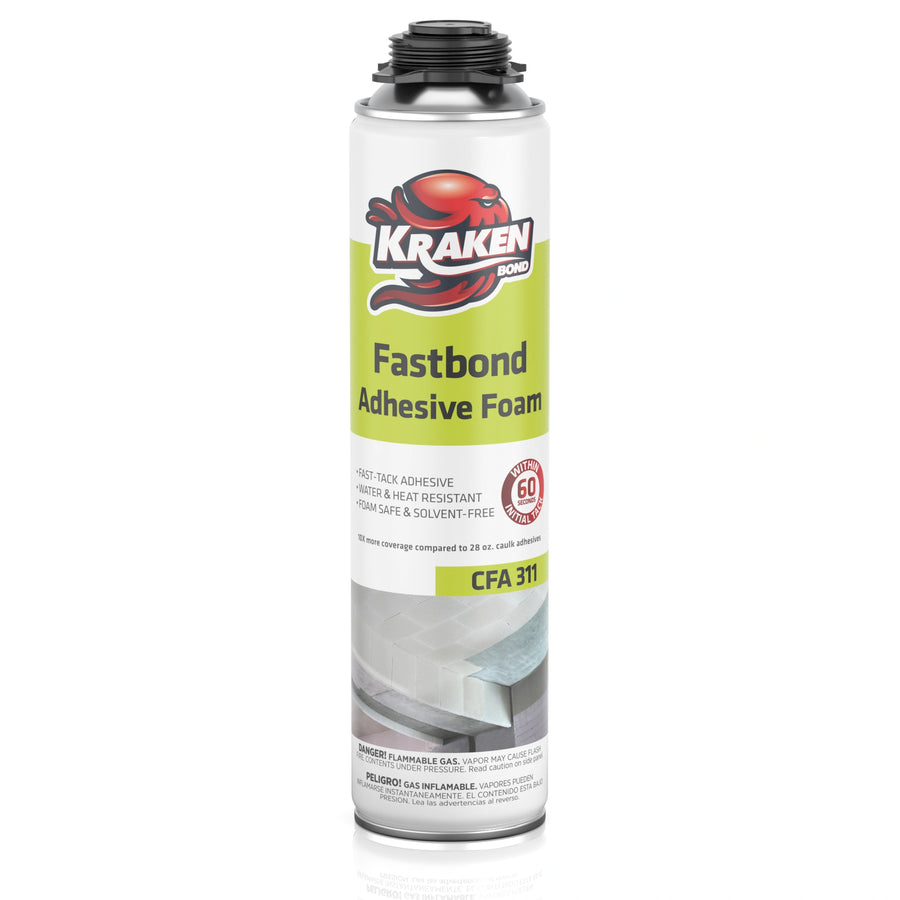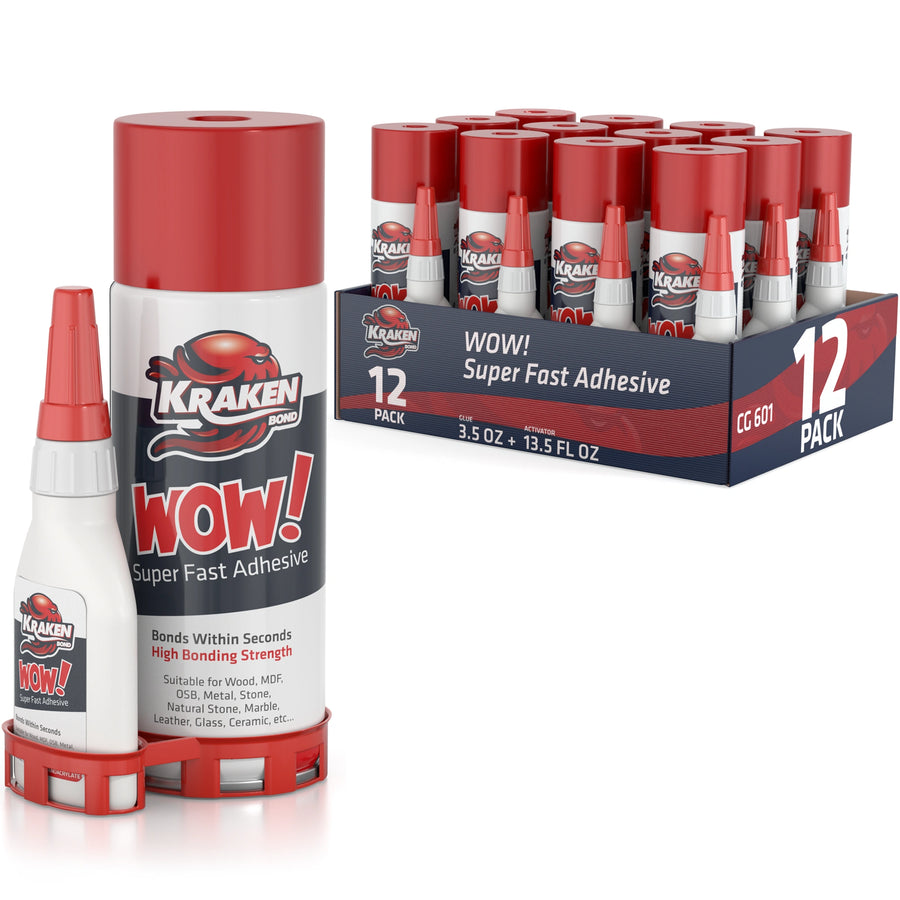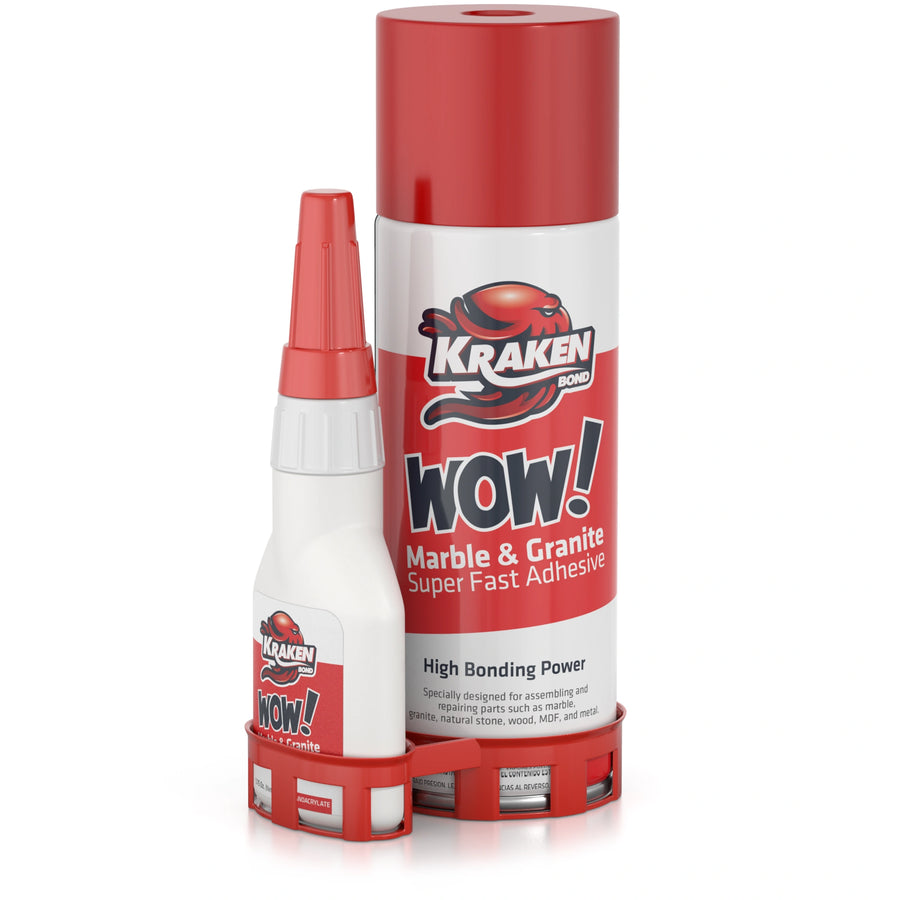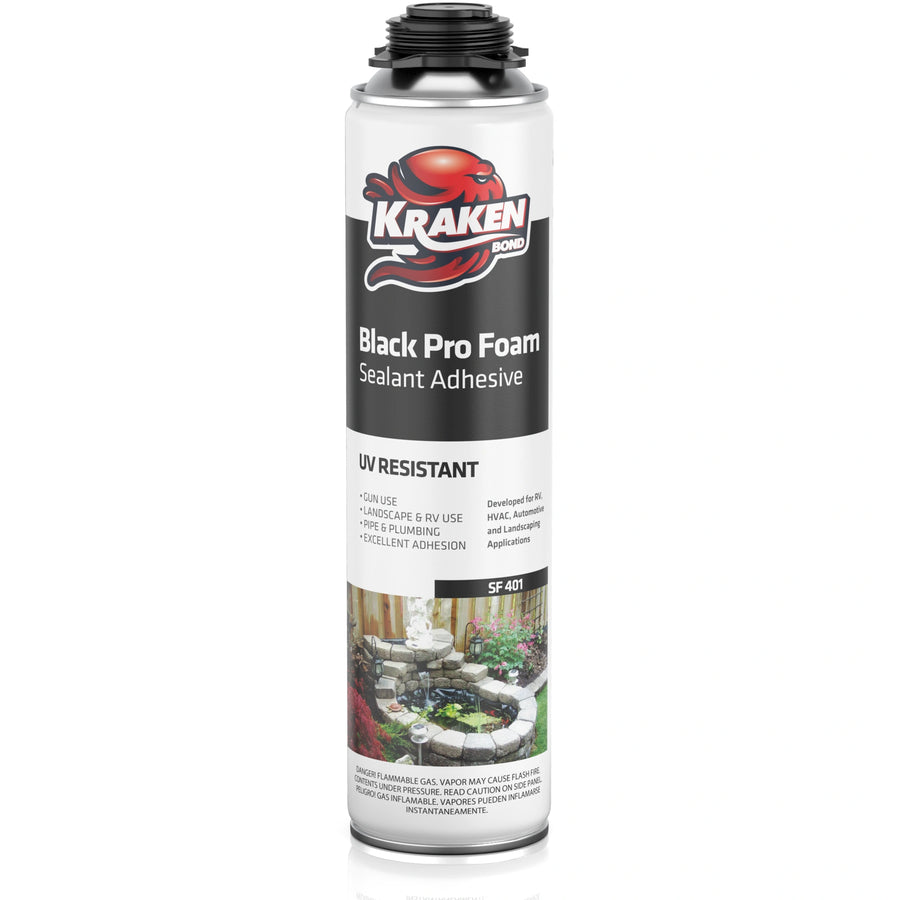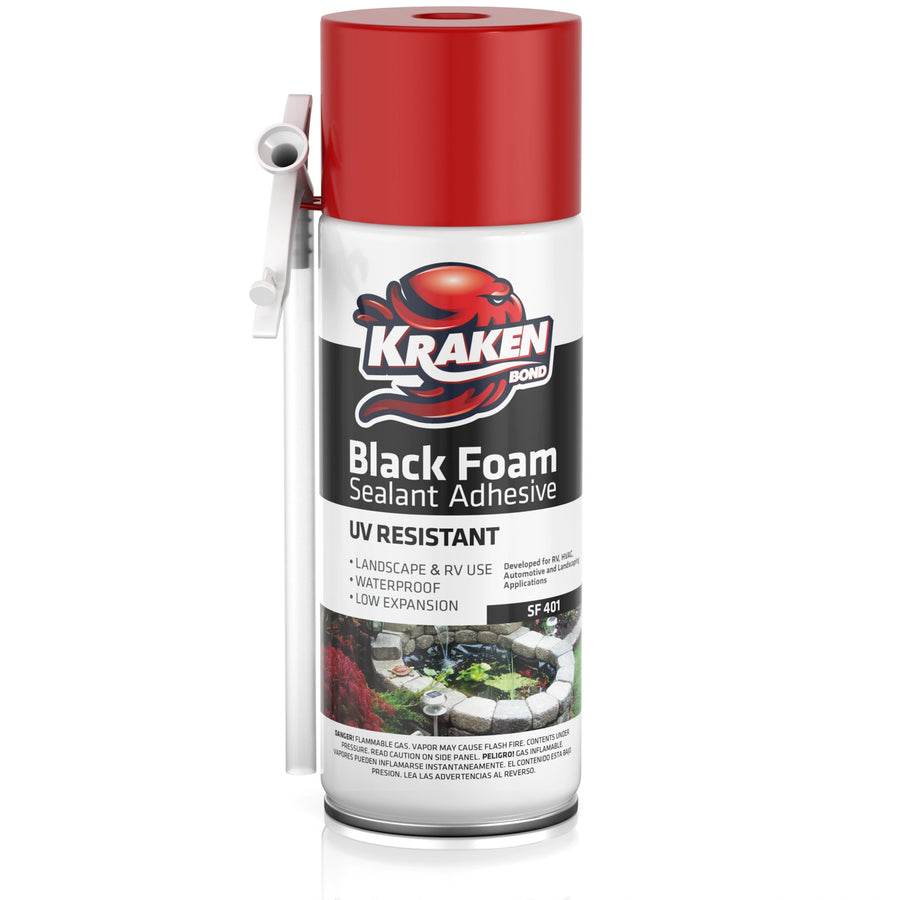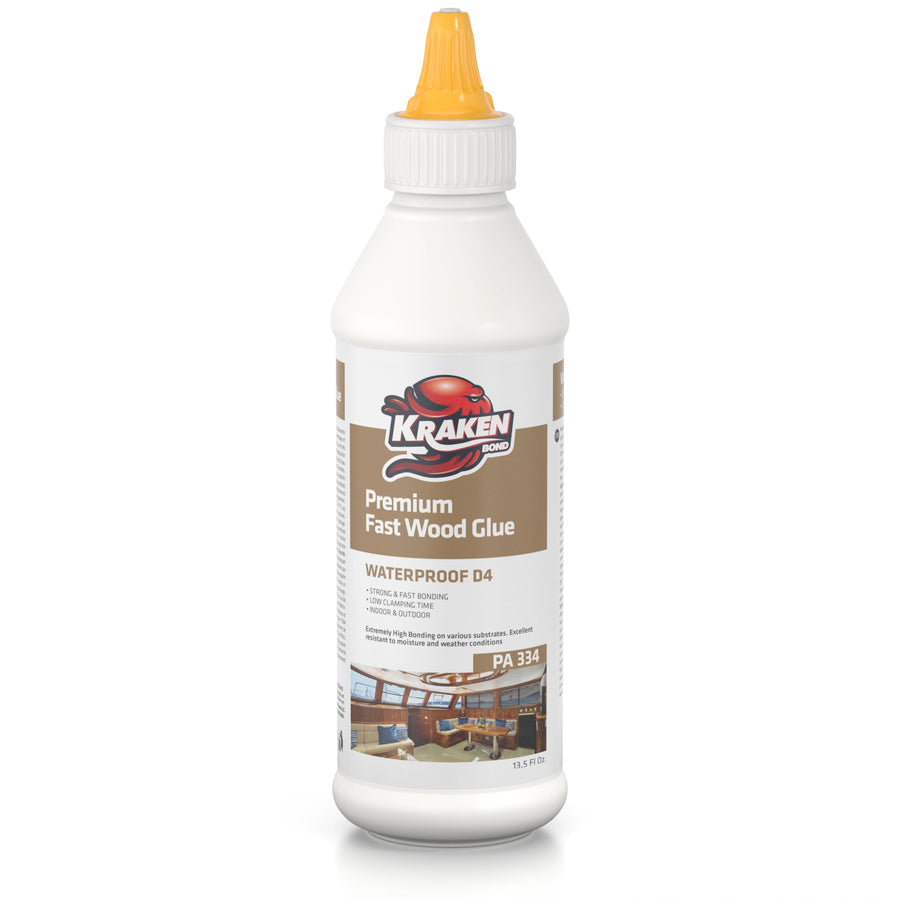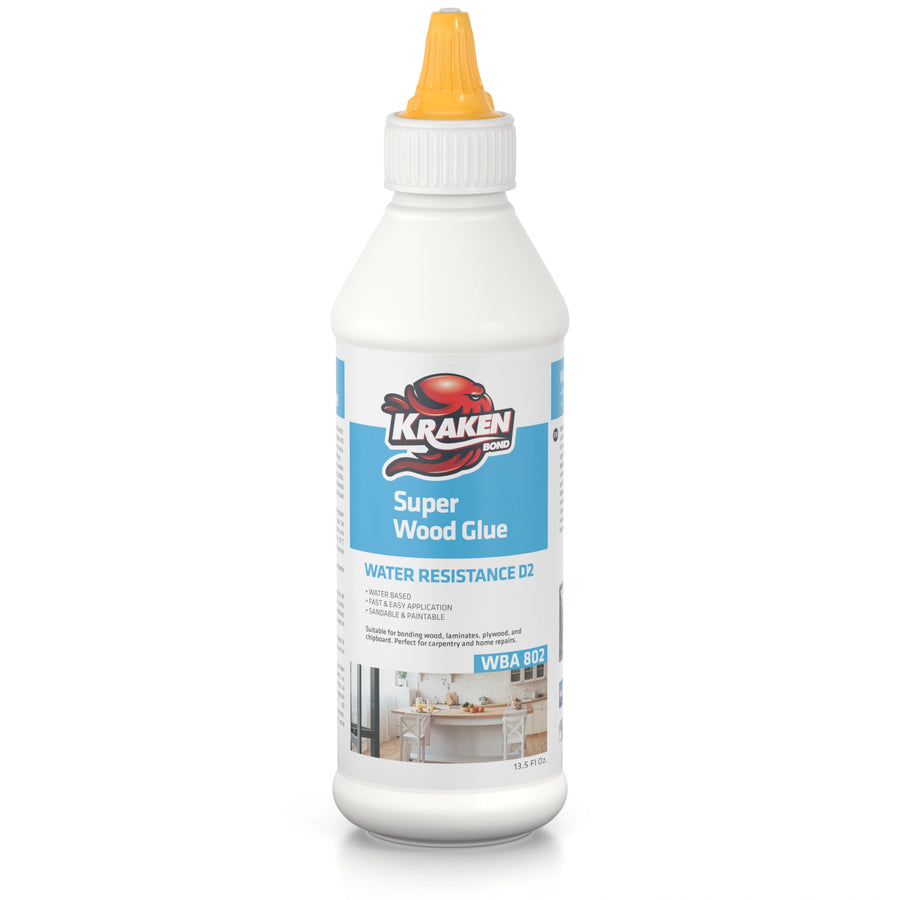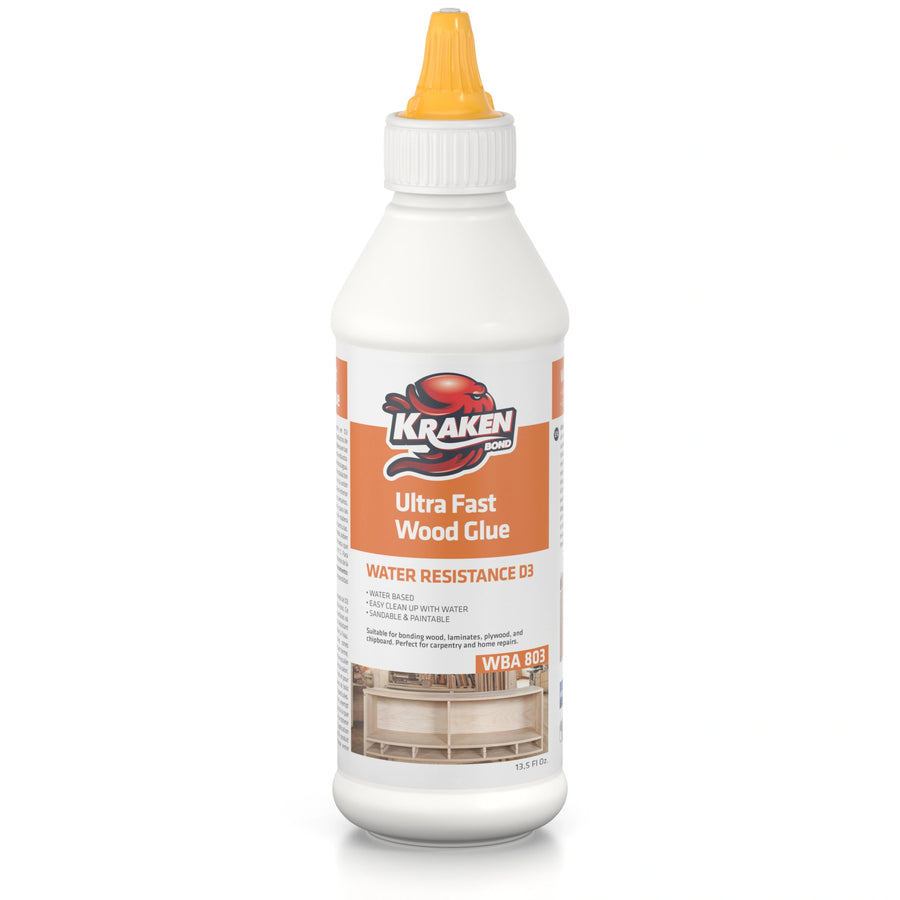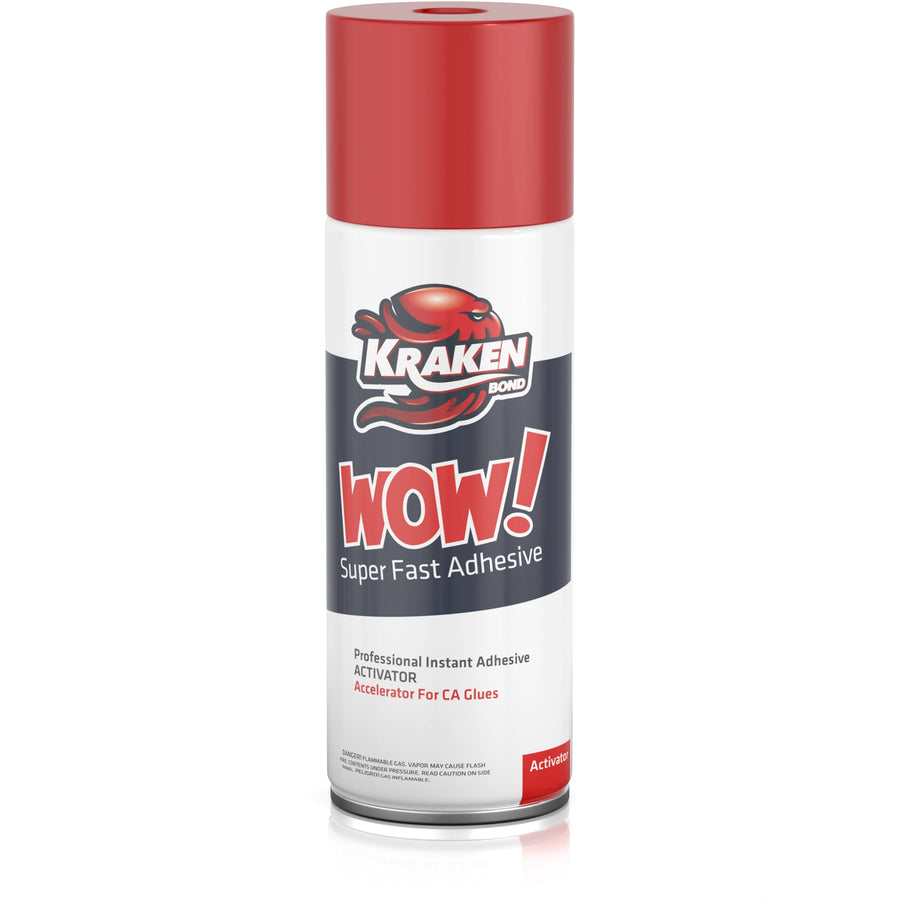Adhesives and glues are essential components of a toolbox. If you are doing a DIY project, repairing something at home, or mending a fabric, you will probably need to use adhesives and glue. Kraken has developed many types of adhesives for different aims. We want to serve you at home, in the automobile, garage, school, office, or workshop with our vast family of glues, adhesives, joint filler sealants, installation foams, or insulation chemicals. Kraken is a helper who makes your work easier, saves you time, and contributes to you.
Types of Adhesives
We can categorize adhesives and glues by their origins, adhesive material, and adhesion method. They are classified as natural adhesives or synthetic adhesives according to their origin. According to their binding method, these items are also grouped as reactive adhesives and non-reactive adhesives.
Construction Adhesive
Construction adhesives are strong-formula adhesives to use for many types of DIY jobs. Most commonly, it is found in tubes to use with a caulking gun.
What is Construction Adhesive Used For?
Construction adhesives bond to different materials and can be used on dry and wet surfaces since they are waterproof construction adhesives. Construction adhesives are used to fix drywall, flooring, tile, or molding to walls, floors, and ceilings.
Is Construction Adhesive the Same as Glue?
The answer to this question is “No!” A construction adhesive can be compared to wood glue, but they are not the same. The wood glue is capable of penetrating the holes and filling them. On the other hand, construction adhesives are too thick to do so. Moreover, wood glues are more robust and will rarely shatter. Finally, construction adhesives tend to crack under pressure.
Epoxy Adhesives
Among many types of adhesives and glues, Epoxy adhesive glue is one of the most well-known ones. It is a synthetic adhesive produced by blending the resin and the hardener. It is a powerful adhesive, making it a perfect choice for DIY projects. Moreover, it is a gap filler and can be used for reconstructions.
What is Epoxy Adhesive Used For?
Epoxy adhesive is mainly known as structural or industrial glue. Due to its properties, such as chemical resistance, strong adhesion, and toughness, epoxy resin is used in many industrial and consumer applications. These high-performance glues are used in products that need powerful bonds to substrates such as glass, metal, wood, or stone. They are more resistant to heat and chemical reactions when compared to other types of adhesives and glues.
Is Epoxy the Strongest Glue?
Among the reactive adhesives and glues, epoxy is the strongest one. Epoxy adhesives are best compared to super glues. However, epoxy adhesives are stronger, durable, resistant, and cannot be removed easily.
Wood Glue
Wood glue is a vital member of the adhesive and glues family and is used to stick pieces of wood together. Selecting the right wood glue can allow you to be the carpenter of your wood-based DIY projects without using nails or screws.
What is Wood Glue Made of?
There are many types of wood glues with various ingredients, but three main constituents of wood glues can be listed. A rubbery polymer, polyvinyl acetate is a widely used component of wood glues. It is good to use with porous materials. Polyurethane is another strong material in wood glue production. The synthetic and waterproof adhesive aliphatic resin makes strong and durable wood glues.
How to Choose and Use Wood Glue?
You should keep in mind some points when choosing the best wood glue among adhesives and glues for your project and using it.
-
Choose the Right Wood Glue
First, you must prefer waterproof glue if you are doing an outdoor project. Another point that you should bear in mind is that wood glues lose their holding power after two years, so do not buy a large economy-size bottle if you will not be able to finish it in a short time.
-
Use It Properly
Apply the glue to the surface of the wood and spread it into a thin layer to ensure the best bond. Press the pieces together with a G-clamp. It would be best if you were careful about the drying time of the glue; while some types of adhesives dry in less than a minute, some of them may take 24 hours to form a cure. Be careful not to put any stress on it, at least for 24 hours.
Silicone Adhesives
Silicon glue is a functional one in the adhesives and glues team. Its thermal and chemical strength makes it a versatile adhesive used in many areas.
What is Silicone Glue Used For?
Silicon glue is a commonly preferred one for household use and crafts. It is used to bond many different materials such as glass, metal, or plastic. It is very good at filling the gaps and can be applied to any gaps, breaks, or cracks by using a silicone glue gun. Silicone glue is highly resistant to weather conditions and moisture, so it is commonly used in exterior jobs such as sealing windows to frames or filling in the gaps between the frames and the windows. For the same reason, it is used to produce a wide variety of goods that can be exposed to extreme conditions.
Is Silicone Adhesive Waterproof?
Yes, it is. It is highly resistant to water, weather conditions, and chemical reactions. It is one of the water-resistant adhesives and glues thanks to the silicon and oxygen atoms it includes.
Is Waterproof Silicone Glue Removable?
You may want to remove and replace the silicone glue after it wears down. You do not need a specific adhesive remover. There are two easy ways to do so. You may prefer to soften the glue using a softening agent, among which vinegar is the most common one. Apply it thoroughly to the silicon and wait for several hours until it softens. Or you can prefer to heat the silicon with a blow dryer or a heat gun and soften it. After the silicone softens, you can clear the silicon glue by scraping it with a sharp knife, a blade, or a chisel.
Is Silicone the Same as Glue?
Silicon is one of the most used adhesives and glues, and you can use silicone glue as exterior glue. However, its adhesive qualities are likely to break down sooner when compared to other kinds of adhesives.
Super Glue
Super glue is an instant adhesive capable of bonding almost any material. It forms nearly unbreakable bonds. It is a type of cyanoacrylate adhesive.
What Can Super Glue be Used for?
Using super glues is a practical way of repairing cracks or breaks of many materials. Paper, wood, plastic, glass, ceramic, leather, natural fibers, and metal are only a few of them to name here. Super glue is ideal for picking up adhesives and glues if you need a bond that sets fast and is highly resistant to temperature and moisture.
Pros and Cons of Super Glue
Super glue offers both advantages and disadvantages to the user.
Pros of Super Glue
- Ease of use: Some adhesives and glues must be mixed right before using them. When it comes to super glue, you do not have to put much effort into combining a mixture to form a glue or to bond a thing to another one.
- Fast bonding: You do not need to clamp or wait for hours. In a few minutes, it is done when you use super glue.
- Functional: It can be used with many materials both indoors and outdoors.
- Highly strong: When compared to many other types of adhesives and glues, super glues are stronger.
- Dries fast and clear
- Resistant to temperature and moisture
Cons of Super Glue
- It might be expensive if you need to use it in large amounts. You need to choose other types of adhesives and glues if you must use plenty of it.
- It is incapable of filling the gaps. Superglue may not work well if there are irregular gaps between the two surfaces you want to bond together.
- Drying fast can be considered a disadvantage as well as being an advantage. It gives a very short time for the user to get the objects located well.
- Despite the strong bonds it forms, super glue may shatter with a sudden impact.
Spray Adhesive
Spray adhesive is among adhesives and glues applied onto a surface from an aerosol can. It is sprayed out in a mist and creates a consistent coat easily.
What is Spray Adhesive Used for?
Repairing fabric or leather, fixing appliances and furniture, and art projects or crafts are where a spray adhesive is most used. Spray adhesive for paper applications is very practical since it does not cause wrinkling on the paper. Besides, spray adhesives allow for detailed placement, so spray adhesives for fabric mending are also effective.
Tips For Spray Adhesives
- Be sure to work in a well-ventilated area.
- Be careful with any safety cautions on the can.
- Shake the can before applying the glue. Spray the adhesive out from about 20 cm and keep the bottle upright.
- Spray both surfaces and adhere them together for the best bonding.
Craft Glue
Craft glue is a water-based, non-toxic polyvinyl acetate glue. It is colorless and odorless, and so the safest one among adhesives and glues for all users of any age.
What is Craft Glue Used For?
Craft glue uses include bonding materials such as foam, plastic, paper, or wood for crafting projects. Craft glues are used for school art projects or hobbies. Craft glue for paper and craft glue for fabric are commonly preferred ones.
What is the Best Glue for Kids Crafts?
White craft glue, another name for polyvinyl acetate glue, is the safest for children. It is non-toxic and easy to use.
What is the Difference Between Adhesive and Glue?
The names adhesives and glues are used interchangeably, but glue is a type of adhesive. In daily language, adhesive refers to many kinds of chemical substances in solid, gel, or liquid forms. On the other hand, glues are usually liquid-form adhesives. Glues are produced using natural sources, whereas adhesives are mostly made from synthetic substances.
What is Adhesive Glue Used For?
Adhesives and glues are substances to stick separate things. They hold and bind two different items made of various materials together.
How do Adhesives Bond Two Surfaces Together?
When you stick two materials together with adhesives and glues, the bond is created in three main ways. First, an adhesive creates a mechanical bond by pouring into gaps in the material. It produces a physical bond between the adhesive and the surface. Second, bonding occurs due to a chemical reaction between the adhesive and the other material. Third, electrostatic forces create a bond between the glue and the surface.
What is the Synonym of Adhesive?
The adhesive is most known as the synonym of glue. It is also known as cement, paste, or mucilage.
Choosing the correct adhesives and glues for the job may be difficult. Now that you have all the information required to find the best adhesive for you, we wish you a nice time with your projects.


